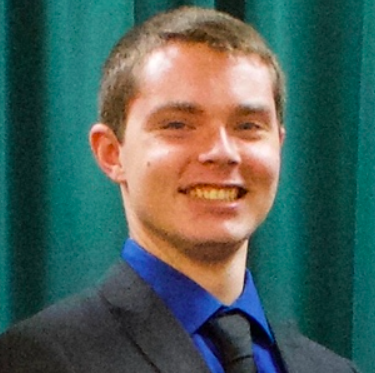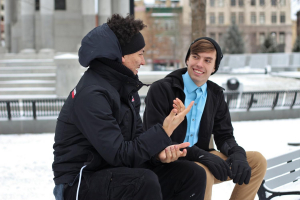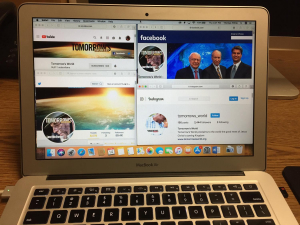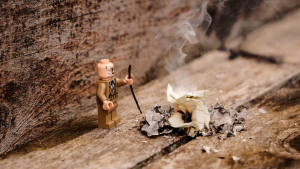Second Thoughts: Internal Organs Are Important Too!
by Thomas White, student at LivingEd-Charlotte

“…I think of a body of believers, when I think about the Church. …the body of believers is made up of so many different kinds of people, from all different kinds of backgrounds, all different kinds of races, all different kinds of experiences, different cultural backgrounds, and different talents.” ~ Mr. Jerry Ruddlesden
Student Assembly, March 14, 2019.
A novel by Robert Heinlein includes a quote that ends with “Specialization is for insects,” claiming that every human being should be able to do basically everything under the sun. That’s all well and good if you’re a character in a novel with as many inexplicable talents and abilities as the author can write for you, but in real life, no human being can do everything. The Apostle Paul says as much in 1 Corinthians 12, where he informs us that God’s Church is a body, and that each member of it makes up a separate and unique, yet unified and integral, part of that body. For this week’s assembly, Mr. Jerry Ruddlesden informed us of the absolutely staggering amount of work that goes into maintaining and operating that body, from the ins and outs of making sure Sabbath Services across the world have halls to be held in, to the intricacies of creating a professional telecast and finding television stations on which to show it. All of this is done by an immense amount of people…and most of these people work almost entirely “behind the curtain.”

“…the body needs a head, the body needs a foot. The body needs an eye, the body needs an ear. We preach the gospel, we feed the flock, and all those little things that happen here, all of us together, we’re a part of that.”
All these unseen—yet hugely important—things, being done by all these unseen—yet absolutely invaluable—people, caused a thought to occur to me. Thanks to Paul’s inspired words, we understand that some members of Christ’s body are eyes, some are ears, some are hands, and some are feet. Obviously, all these parts are on the outside of the body – we don’t need to get X-rayed to see that we have eyes, ears, hands, and feet. But what if you’re none of the above? After all, a body is a lot more than just what the mirror shows. What if you’re a pancreas? A thyroid gland? A spleen? These parts aren’t visible—unless something really, really bad just happened to you—but…well, try spending a day without your thyroid. Actually, please don’t. It will not go well.
“…the members in the Church who are not in charge have their part to play. And it’s not just to ‘pay and pray.’ … It’s way more than that.”

You see where I’m going with this, and Mr. Ruddlesden went there first, as he explained that, for example, though each Tomorrow’s World telecast may only be presented by one man, there are perhaps dozens of people that are never shown, but without whom that telecast would never be produced. Those people aren’t parts of the body’s face; they’re internal organs, and you don’t need to be a doctor to know that a body needs internal organs. The telecast needs more than presenters. The magazine needs more than writers. The Church needs more than people in Charlotte. Preaching the gospel and feeding the flock takes every single one of us. Whether it’s Mr. Weston himself teaching doctrine to the members or the teenager in a tiny congregation being a light and example to everyone they meet, both contribute to the feeding and preaching in their own special ways using their own particular talents. We’ll always need faces, but internal organs are important, too.

Thomas White was one of the onsite Living Education students for the 2018-2019 semesters. He also has a Bachelor’s Degree in English. Thomas currently works as an Editorial Assistant for the Living Church of God. According to his wife, he eats pizza in entirely the wrong way.


 “We’ve got to speak truth to our neighbor, and any employer is our neighbor, in the context that God uses. … You can be a false witness of yourself, if you don’t tell the truth.”
“We’ve got to speak truth to our neighbor, and any employer is our neighbor, in the context that God uses. … You can be a false witness of yourself, if you don’t tell the truth.”
 The more things we like to do, the more common ground we’ll find with others. And as Mr. Ames said, the more versatile we are, the more effective we can be as Christ’s Ambassadors. God made a lot of people, and almost all of them have passions they love talking about. Being able to talk to many different people, about many different things, can improve the light in which people see you, and improve the light in which they see “that Church you’re in.” It’s good to have a Thing, but as Mr. Ames showed, it’s even better to have many.
The more things we like to do, the more common ground we’ll find with others. And as Mr. Ames said, the more versatile we are, the more effective we can be as Christ’s Ambassadors. God made a lot of people, and almost all of them have passions they love talking about. Being able to talk to many different people, about many different things, can improve the light in which people see you, and improve the light in which they see “that Church you’re in.” It’s good to have a Thing, but as Mr. Ames showed, it’s even better to have many.
 If a random person on the street walked up and said, “Hi! Let’s be friends”, I would naturally be a bit suspicious. If that person wore a ski mask, I would be more suspicious, and probably run. As Mr. Wakefield pointed out, social media makes it possible for people to try to gain your trust while wearing fabricated identities as their ski masks, so socializing with people you’ve never met offline is usually a bad idea. Acting with knowledge means being careful about who we believe online, as well as being careful about what we put there. “Set a guard, O LORD, over my mouth,” reads Psalm 141:3, and today, as Mr. Wakefield said, “mouth” could just as easily be “keyboard.” The internet is a mixture of good and evil, and if we act with knowledge, God can keep us from the latter.
If a random person on the street walked up and said, “Hi! Let’s be friends”, I would naturally be a bit suspicious. If that person wore a ski mask, I would be more suspicious, and probably run. As Mr. Wakefield pointed out, social media makes it possible for people to try to gain your trust while wearing fabricated identities as their ski masks, so socializing with people you’ve never met offline is usually a bad idea. Acting with knowledge means being careful about who we believe online, as well as being careful about what we put there. “Set a guard, O LORD, over my mouth,” reads Psalm 141:3, and today, as Mr. Wakefield said, “mouth” could just as easily be “keyboard.” The internet is a mixture of good and evil, and if we act with knowledge, God can keep us from the latter.



 Thankfully, God’s word tells us in advance of our ultimate destiny, so kingship hopefully won’t surprise us the way it surprised King Bhumibol. Even so, we probably will be surprised by how what we’re learning now, no matter how inconsequential it may seem, will end up being used by God to immense effect. Mr. McNair used the example of Joseph, who probably never thought for a second that his time as a slave and a prisoner would teach him skills he would later use to govern the nation of Egypt. But (spoilers!) that’s exactly what happened (Genesis 45:3-8). Mr. McNair advised us to look beyond what we see, to consider how what we’re learning right now might be used to unexpectedly shape our lives and the lives of others. As Mr. McNair said, “It’s always easy to think that the big, valuable stuff will be somewhere else, will be at another time, will be in another place…and to miss the goldmine in front of you.”
Thankfully, God’s word tells us in advance of our ultimate destiny, so kingship hopefully won’t surprise us the way it surprised King Bhumibol. Even so, we probably will be surprised by how what we’re learning now, no matter how inconsequential it may seem, will end up being used by God to immense effect. Mr. McNair used the example of Joseph, who probably never thought for a second that his time as a slave and a prisoner would teach him skills he would later use to govern the nation of Egypt. But (spoilers!) that’s exactly what happened (Genesis 45:3-8). Mr. McNair advised us to look beyond what we see, to consider how what we’re learning right now might be used to unexpectedly shape our lives and the lives of others. As Mr. McNair said, “It’s always easy to think that the big, valuable stuff will be somewhere else, will be at another time, will be in another place…and to miss the goldmine in front of you.”


 By Thomas White, Student at Living Education-Charlotte
By Thomas White, Student at Living Education-Charlotte




 “Employers don’t pay you what you need; they pay you what you’re worth. … If you want $20 an hour, you probably have to make about $50 an hour for your employer.”
“Employers don’t pay you what you need; they pay you what you’re worth. … If you want $20 an hour, you probably have to make about $50 an hour for your employer.”